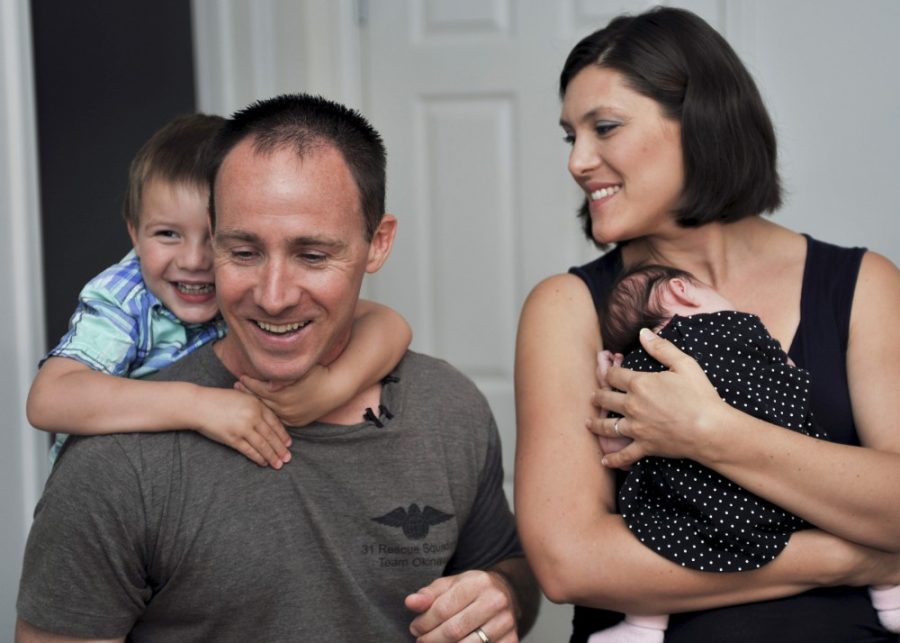Conflict management is an important skill in many settings — work, school, social situations — but new research from the University of Arizona indicates that it might be even more important at home, especially for parents whose children witness their arguments.
One of the researchers involved in this research was Olena Kopystynska, a doctoral student in the Norton School of Family and Consumer Sciences, who said the study was inspired by the lack of research on the relationship between parents’ conflict management and a child’s well-being.
“What we know about interparental conflict is that a lot of studies use variable-centered approaches to study parents,” Kopystynska said. “For example, they would use mothers’ or fathers’ conflict and how it relates to parenting, but there are not a lot of studies that look at mothers and fathers simultaneously.”
Therefore, the study was meant to focus on how parents handle conflict between themselves and how this can affect their children’s emotional security.
Kopystynska and her team gathered their data from an online database accessible to the public, with permission from the UA Institutional Review Board Center. The data had been gathered on a national scale for the Building Strong Families Project, part of the Healthy Marriage Initiative, funded by the U.S. Department of Health and Human Services. Their goal was to improve family relationships and provide education on relationships and how to strengthen them for low-income, unmarried couples.
RELATED: Drop, Cover and Hold On: What to do during an earthquake
Several different variables were studied, but Kopystynska focused on the data that looked at both mothers and fathers.
Parents reported how their spouse made them feel during and after an argument. Observational data was used to supplement the information given by the parents.
“Actual researchers came into the homes of the parents and observed interactions with the child one-on-one,” Kopystynska said.
That was done by playing a game, during which researchers looked at how harsh or supportive the parents were. This was how the researchers learned more about parenting styles.
Parents also reported on their child’s well-being and emotional insecurity. Both parents often gave very similar reports, so the team was able to compile the data into one demonstration of child emotional insecurity.
Kopystynska’s research revealed four different couple profiles, all of which affect children in different ways.
The most common profile, comprised of approximately 75 percent of the couples involved in the study, was the couple who argued constructively. According to Kopystynska, mothers and fathers in this relationship apologized to one another and were respectful despite their disagreement.
A second profile described a couple who were destructive in their arguments. Comprising only 3 percent of those studied, Kopystynska said couples who fit this profile were rude to each other and displayed aggression, either physical or verbal.
The final two profiles were mirrors of one another; in one profile, the mother argued constructively while the father didn’t, and Kopystynska said in the other profile, the trend was reversed.
“The most important message was that couples who argued constructively had the most favorable outcomes,” Kopystynska said. “Mothers were more supportive in that profile, and children had the least levels of emotional insecurity.”
Parents in this profile also saw positive benefits to their own relationship, according to Kopystynska. They were more likely to remain together and less likely to experience infidelity. Those in the 3 percent of destructive relationships experienced the opposite: They were, on average, more likely to break apart and more likely to experience infidelity.
RELATED: Combating the opioid crisis with education
Though she isn’t working on furthering the study at the moment, Kopystynska said she believed the data should be studied over a longer period of time in order to look for patterns. Would a constructive couple always argue in that fashion? Did couples fit the same profile over their entire relationship? According to Kopystynska, there is currently not enough data to expand the study in this way.
Kopystynska’s current research looks at how personality traits might indicate an inclination toward a certain type of conflict management.
This study opens the door to awareness of how conflict management can affect children in both positive and negative ways.
“To be realistic, we’re going to be arguing with other people, no matter what kind of relationship — personal, social, work relationships,” Kopystynska said. “It’s not necessarily the mere presence of conflict but rather how you solve conflict that matters.”
Most importantly, an individual must be aware of both constructive and destructive management strategies. Kopystynska said the take-away is that they need to analyze how they argue and whether it is a positive method, especially when they are raising children with another person.
“What the research has shown is that children benefit from constructive strategies,” Kopystynska said.
Follow Nicole Morin on Twitter









